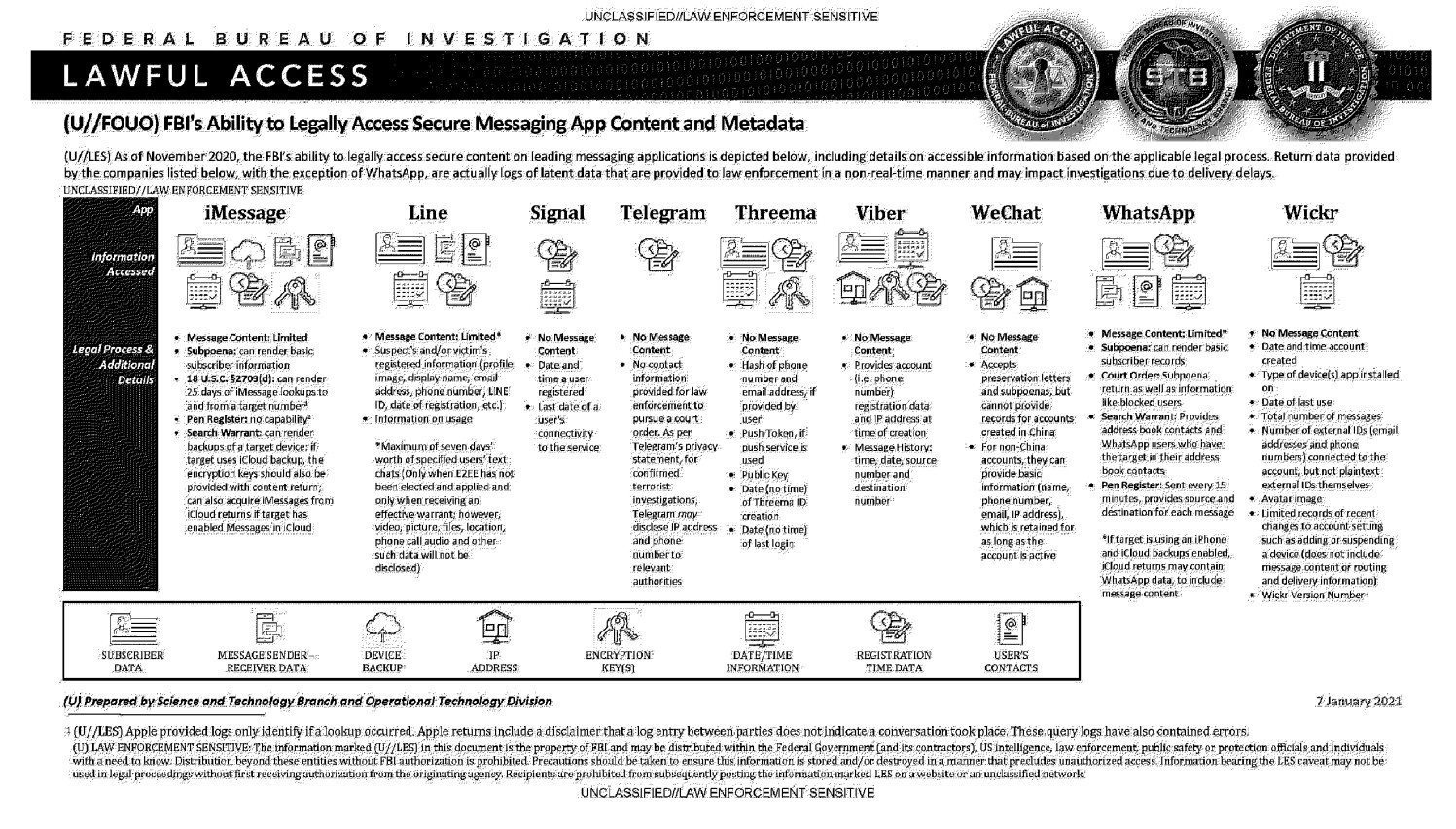Edgar Cervantes / Android Authority
TL;DR
An internal FBI document revealed how much data it can legally obtain from messaging apps. It turns out that iMessage and WhatsApp were the most permissive in this regard. Signal and Telegram are two high profile apps that don’t give a lot of data.
There are many messaging apps on the market today, and many of these services place great importance on their security and privacy policies. Now, a recently leaked document has revealed how much data the FBI can legally obtain from these services.
Rolling Stone and Property of the People have obtained an FBI document (see below) that details exactly what kind of information the office can get from various messaging apps with a warrant or subpoena. And it turns out that WhatsApp and iMessage provide the most information.
WhatsApp, iMessage, and Line all provide “limited” message content in response to a lawful FBI request. Signal, Telegram, Threema, Viber, WeChat, and Wickr do not disclose any message content, however.
But the amount of data shared by WhatsApp and iMessage doesn’t stop there, and it turns out that the “limited” message content isn’t as trivial as it sounds.
The biggest snitches discovered
Rolling Stone / Property of the people
Facebook-owned messaging platform will only drop “basic subscriber records” with a subpoena, but search warrant allows FBI to seize address book contacts and WhatsApp users who have the target as a contact. A monitoring request (referred to here as pen register) will also allow WhatsApp to send the source and destination of messages to the FBI every 15 minutes, but not the content of the message itself.
Are you using an iPhone and your WhatsApp messages are backed up to iCloud? Then the FBI can also retrieve the actual contents of the message, as Apple is required to hand over the iCloud encryption key along with a search warrant.
More reading: The best alternatives to WhatsApp right now
Meanwhile, iMessage only provides “basic” information about subscribers with a subpoena, but processes 25 days of iMessage search queries with a court order. Authorities armed with a search warrant can also take backups of a target’s device and see actual messages if the targeted person is using iCloud backups for iMessage. Apple’s service does not, however, offer pen monitoring / recording capability like WhatsApp.
Telegram and Signal are two services with greater limitations on what can be legally turned over to the FBI. Telegram does not offer message content at all and generally does not provide contact information. The FBI document adds, however, that Telegram “may” disclose IP addresses and phone numbers to authorities for “confirmed” terrorist investigations.
Signal also does not provide message content, but does offer the date and time that a user registered with the service and the last date that they logged into the platform.
Most of this information is not new, but the document gives users a better idea of how these platforms stack up against each other. And this is especially important for journalists, leakers and their sources. However, will this news make you change your messaging application? Let us know via the survey below.
Will you switch messaging apps after these FBI disclosures?
12 voices
Yes
25%
Non
25%
I have already switched to Signal / Telegram
50%
comments
–


